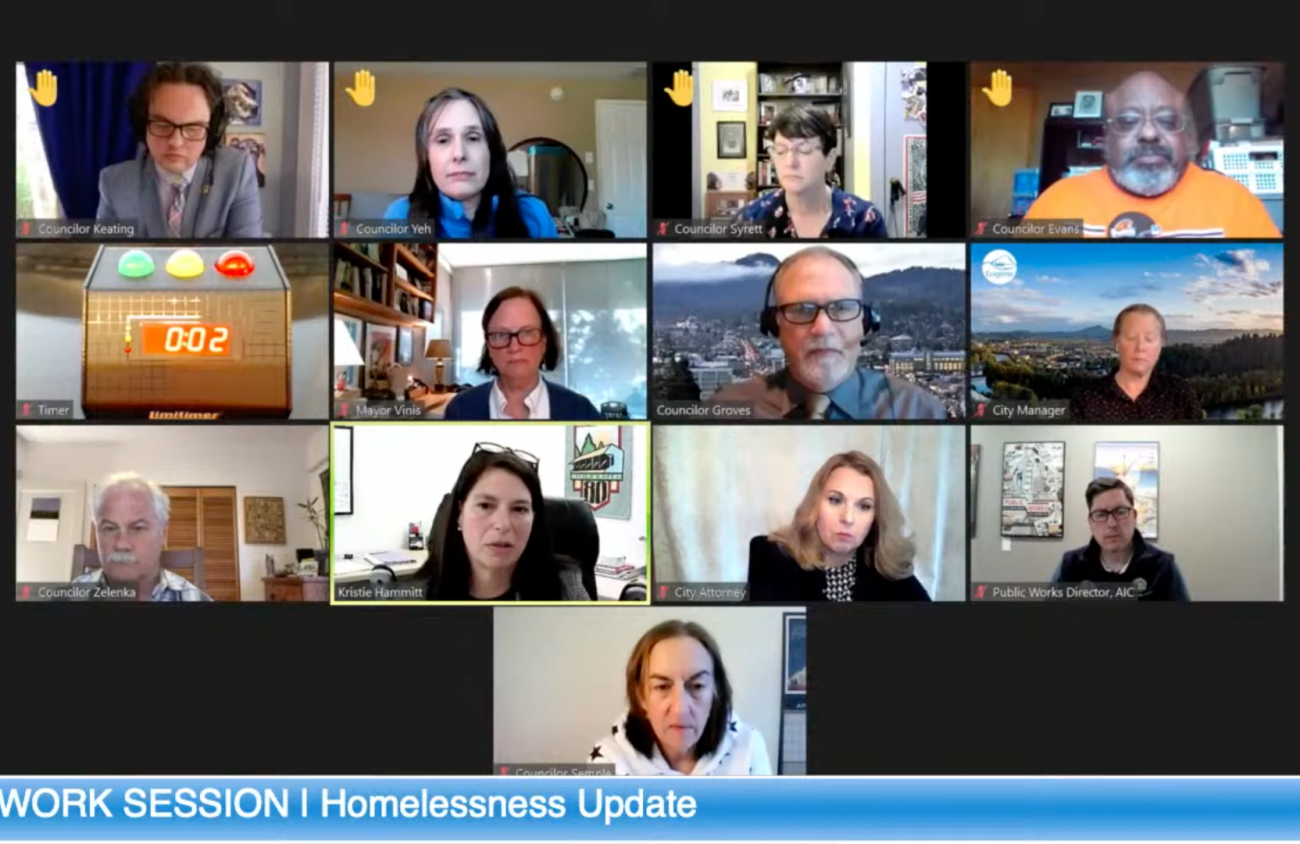At the Eugene City Council’s work session April 12, Assistant City Manager Kristie Hammitt and Public Works Director Matt Rodrigues introduced a six-month plan that would provide new camping sites for unhoused people.
The plan would bring together staff across the city’s departments to work with partners to identify land for tent and car camping spaces. Rodrigues said they hope to establish 300 tent camping spaces across four to eight locations, with groups of up to 40 tents per site, as well as two to four car camping sites with up to 60 vehicles and 200 spaces total. “We know that’s a big lift, but we think that’s really what we need to start moving in a different direction,” Rodrigues said at the meeting.
Hammitt said the tent camping sites, car camping sites and camping response in all are estimated to cost between $6.1 million and $9.6 million in one-year costs, and between $5.2 million and $6.1 million in annual costs.
The city is considering both public and private property for the sites that may be for sale. Potential funding resources include $750,000 from the general fund for FY22, $600,000 ($400,000 for outreach and $200,000 for navigation services) from a funding package the council will discuss at its April 26 work session, and $3.5 million requested in state funds for land acquisition.
“Our intent by offering up these options is to make sure that people have meaningful places to move to so that we don’t stay in this particular temporary situation any longer than necessary, Hammitt said.”
Councilor Alan Zelenka said at the meeting that past community surveys have shown a lack of support for the council spending money on the issue, but local homelessness has “gotten bad enough that they are now supportive of it.” Homelessness is a symptom, he said, while the problem is a lack of affordable housing, mental health services and access to substance abuse services.
Councilor Mike Clark expressed concerns at the meeting that the plan did not address unhoused people who choose not to seek shelter. Most homeless organizations and advocates call the idea that many people are homeless by choice a myth. Clark suggested living in a “provided opportunity” instead of illegal camping as a condition of sentencing, saying, “I’d like to have a more thorough discussion with our municipal judge about holding people truly accountable so that they’re not just ignoring the opportunities we‘ve created here, but instead are compelled to take some of them.”
The council voted unanimously to direct City Manager Sarah Medary to schedule a hearing on the ordinance for April 26.
Councilor Emily Semple supported the proposed ordinance, adding that she has “so much frustration with what’s going on every single day both out west and at WJ [Washington Jefferson Park] and over on 13th, and I know the public does too. And I don’t know what the answer to this is, but I know people are desperate to see us do something.”
Residents providing public comment expressed concerns about incidents they have seen around homeless camps, including theft, drug use and harassment of customers and unhoused people in nearby camps.
The full recording of the work session can be found here, and the council meeting that followed can be found here. The agenda covered a new appointment to the Eugene Human Rights Commission, as well as ordinances adopting hazardous substance user fees, amending the Central Eugene Plan and addressing “Clear and Objective” approval criteria for housing.
